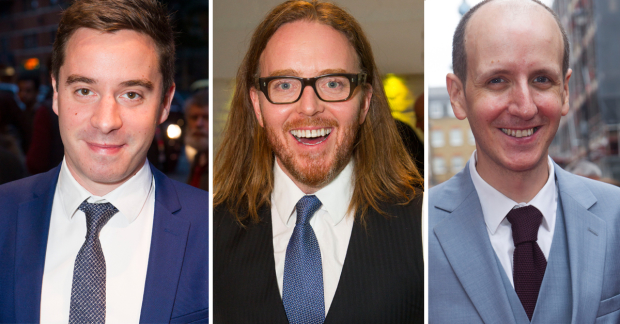Where are the writers in The Stage 100 list?

© Dan Wooller for WhatsOnStage
There’s nothing like a list for cheering up the start of the year – something to pore over, cheer at and argue with. The Stage 100, a list of the 100 most powerful people in theatre at the start of 2017, fulfils all these criteria perfectly.
There are some choices instantly to applaud at the very top of the list. The producer Sonia Friedman has hovered around the upper echelons for some years and it is only right that the arrival of the phenomenon of Harry Potter and the Cursed Child should land her the top spot for the first time – the first time too a woman has held it in her own right for 20 years. The play was her initiative and a symbol of all her visionary virtues; her patience in bringing off a difficult project and nursing it to fruition, her courage in letting it be artistically satisfying (even if that meant spreading its impact over two plays) as well as her commercial hard-headedness.
Friedman’s triumph disguises the fact that women in general only make up 34 per cent of the power list
The fact that its phenomenal success has brought the director John Tiffany and the writer Jack Thorne onto the list as new entries is also satisfying: both have projects in 2017 that will only confirm their significance and status. (Tiffany’s Glass Menagerie is luminous and his take on Road at the Royal Court will be fascinating, while Thorne’s updating of Buchner’s Woyzeck at the Old Vic is an enticing prospect.) Noma Dumezweni‘s distinguished career as an actress and indeed director has also been brought into the spotlight by the magic of Harry Potter, and her arrival as the highest placed actress on the list at 22 is another cause for jubilation.
Friedman’s triumph disguises the fact that women in general only make up 34 per cent of the power list, but the inclusion in the top ten of Josie Rourke and Kate Pakenham at the Donmar and the redoubtable Nica Burns is gratifying. The appearance of Emma Rice and Neil Constable of the Globe at 10 feels like a gesture of solidarity following her imminent enforced departure rather than absolutely merited (good as it was, her first season wasn’t quite that good) but it is welcome for all that. She is undoubtedly a woman who will make her mark on this list in multiple ways in years to come.
What’s also exciting, in this context, is just how many interesting figures there are in the lower reaches of the list. I know that I shall be looking out for the achievements of Simelia Hodge-Dallaway, founder of Artistic Directors of the Future (98), the independent producer Emily Dobbs (no 96) and theatremaker Emma Brunjes (87). I am separately glad that the terrific year of director Robert Icke, the impressive one of Rufus Norris, asserting his leadership (with Lisa Burger and Ben Power) of the National, and the arrival of an extraordinary acting talent in Paapa Essiedu have all been recognised as significant.
On the argumentative side, I can come up with omissions – but that’s the point about lists. They always leave someone out. In this case the most notable absentee seems to be producer Paul Taylor-Mills whose success with In The Heights surely merited at least an inclusion (though he will undoubtedly make the cut next year when The Other Palace is fully up and running). In dance terms, I think the list underestimates the impact Tamara Rojo has had at English National Ballet (she stays in the same position at 69) and the work of choreographers Akram Khan and Wayne McGregor who are nowhere to be seen.
Even in a less-than-vintage year for new writing, this is a staggeringly low number
Overall, and most worryingly, the list undervalues the significance of writing in theatre. There are only five writers who make the cut: Tim Minchin (described as a composer), Jack Thorne, David Hare, David Greig (who also runs a theatre) and James Graham. Even in a less-than-vintage year for new writing, this is a staggeringly low number. New writing is the lifeblood of theatre: without the words provided by playwrights, directors would have nothing to direct and producers nothing to produce. A list that finds no room for Caryl Churchill, Anthony Neilson, Gary Owen, Richard Bean or Ella Hickson, all of whom have made telling contributions to the theatrical year, feels denuded.
Yet in fairness to The Stage panel, their choices perhaps reveal something about the state of theatre in our times. Perhaps we are at a moment when directors and actors are regarded as more important than wordsmiths, where style is more significant than substance. For those of us who love writing, who go to the theatre to be invigorated by words as well as inspired by production values, that is surely a cause for profound concern.










